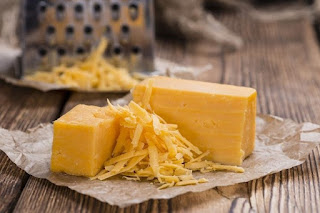nutritional facts of cheese
nutritional facts of cheese
Cheese is a popular dairy product that has been consumed by humans for thousands of years. It comes in a variety of flavors, textures, and forms and can be used in numerous dishes ranging from pizza to sandwiches to salads. But beyond its delicious taste, cheese is also a great source of nutrition. In this article, we'll explore the nutritional facts of cheese and how it can contribute to a healthy diet.
Protein
Cheese is an excellent source of protein, which is essential for building and repairing tissues in the body. One ounce of cheddar cheese contains about 7 grams of protein, while Swiss cheese has slightly more at 8 grams per ounce. Cottage cheese is also high in protein, with 1/2 cup containing around 12 grams. Protein from cheese is considered a complete protein, meaning it contains all nine essential amino acids that the body cannot produce on its own.
Fat
Cheese is known for its high-fat content, which varies depending on the type of cheese. Hard cheeses like cheddar and parmesan are typically higher in fat than soft cheeses like brie and feta. However, not all fats are created equal, and cheese contains a mix of saturated and unsaturated fats. Saturated fats are considered less healthy because they can raise cholesterol levels, while unsaturated fats are considered beneficial for heart health. One ounce of cheddar cheese contains around 9 grams of fat, with 6 grams being saturated.
Calcium
Cheese is a great source of calcium, which is essential for building and maintaining strong bones and teeth. One ounce of cheddar cheese contains around 200 milligrams of calcium, which is about 20% of the recommended daily intake for adults. Swiss cheese contains slightly more calcium, with one ounce providing around 260 milligrams. Low-fat versions of cheese often contain less calcium, so it's important to check the label when making choices about cheese consumption.
Vitamins and Minerals
In addition to protein, fat, and calcium, cheese also contains a variety of vitamins and minerals. Vitamin B12 is found in high amounts in cheese, particularly in hard cheeses like parmesan and cheddar. This vitamin is important for maintaining healthy nerve cells and red blood cells. Cheese also contains vitamin A, which is important for vision and immune function, as well as zinc, which is essential for wound healing and immune function.
Potential Downsides
While cheese can be a healthy addition to a balanced diet, it's important to note that it can also be high in sodium. Salt is often used in the cheese-making process, and some varieties like feta and blue cheese can be particularly high in sodium. It's also important to keep portion sizes in mind, as cheese can be calorie-dense. One ounce of cheddar cheese contains around 115 calories, while 1/4 cup of shredded mozzarella cheese contains around 80 calories.
Conclusion
Cheese can be a delicious and nutritious addition to a balanced diet. It's a great source of protein, calcium, and other essential vitamins and minerals. However, it's important to choose wisely and keep portion sizes in mind. Opt for low-sodium varieties and limit consumption to moderate amounts to reap the benefits of this versatile and tasty food.
